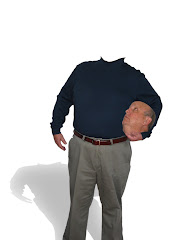There comes a time in the life of every piano student when he asks the question "How long do I have to keep taking lessons?"
The answer is simple: Don't quit before you get to the "tipping point".
There is a "tipping point" in piano that when reached makes it easy to continue as a pianist even if lessons aren't taken. It's like a teeter totter -- once the weight gets on your side, things begin to happen and momentum takes over. Once people know you play well, you get asked to do things -- accompany someone, play at SS, at school, etc. and your skill brings with it some pride of achievement and satisfaction of participating.
As you may know, I took lessons from about 1st grade through 7th or so with no intention of doing anything with it, but because of that I was asked to do several things (let's see if I can remember):
1. When I was a freshman in Placer High the accompanyist for the school choir (which I sang in) was sick for a week, and Mr. Walker asked me to fill in. I was scared and didn't want to, but ended up doing it. I faked a lot of it, but got through.
2. The piano player for a school dance band had just graduated, and because I played a little and they didn't have any alternative, they asked me to play with them. They said I would have to know chords, and I didn't, so I learned a WHOLE bunch in a very few months simply out of fear of being embarrased. I didn't feel very comfortable playing with the group for a couple years, but I gradually got the hang of it.
3. Harry, the owner of the funeral parlor, saw me play at Sunday School at the Methodist church across the street, so asked me if I would fill in for the organist at the funeral home when she was gone. Again, I didn't want to do it, but it paid $15., and all I had to play was 2 or 3 songs.
So one thing led to another and before long I was playing semi-professionally, and then professionally, and eventually played almost continuously for soloists, groups, quartets, trombone quartets, etc. etc. It was natural then to begin teaching privately part time, then full time, then having a studio of my own, then teaching by cassette long distance, then publishing my own piano books and cassettes and then videos and......
The point of all this is: Get past the tipping point! Once you do, momentum will take over. If you like music, don't quit taking lessons until opportunities like this arise naturally -- and don't quit at all if you want to get really good. I continued to take lessons on and off while I was playing professionally, and it paid off big time!
